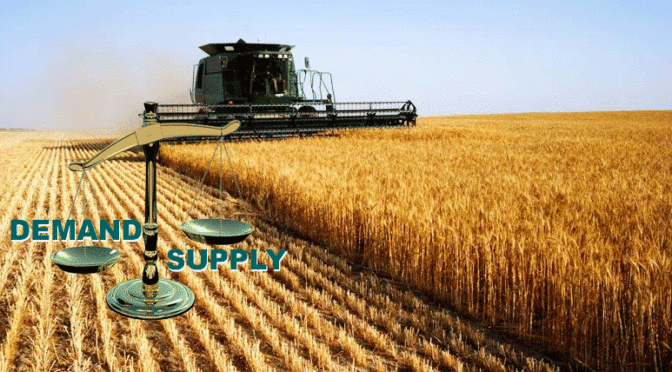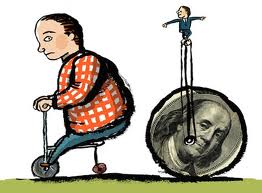
A Prout Globe survey
As is well known, Prout places limits on the individual accumulation of physical wealth. It leaves it to the collective to decide on those limits. The private sector is distinctly regulated under Prout. We should note that such private sector limitations do not refer to psychic and spiritual types of wealth but to physical, material wealth …
By Prabhakar Overland
The vast majority of alternative economic thinkers seem to think there is something seriously wrong with the way wealth is distributed today. They say prosperity should not be reserved for a few, it should be the property of many – the world’s riches should be more evenly distributed. PROUT does not agree with these “wealth distributors”:
“PROUT …
 Dada Vedaprajinananda
Dada Vedaprajinananda
Some years back, street demonstrations in Seattle against globalization and the World Trade Organization, known as the “Battle of Seattle” briefly caught the attention of the news media. One BBC commentator remarked “We know what the demonstrators are against, but we don’t know what they are for.”
Today as I write this essay, a similar demonstration is underway. …
Mark Friedman
Chapter IV: Solutions: How to Reduce Inequality
It is more efficient to structure an economy so that it distributes income equitably in the first place than to attempt to redistribute income through taxation or other means. Without denying the present necessity for a progressive tax structure to redistribute income, Galbraith wrote,
For promoting equality a reasonably equal distribution …
Mark Friedman
Chapter III: Productivity and Income Inequality
Maslow and Eupsychian Management
It is often argued that wide disparities of income are needed to encourage the most talented to be more productive and accept jobs that are more challenging. We have accepted that some income inequality can be beneficial to society if it actually provides an incentive for greater productivity. …
Mark Friedman
Chapter II: The Philosophy of Inequality and the Proutist Challenge
There is little that has more impact on income and wealth distribution in a society than the attitudes of that society toward the institution of private property. The philosophical origins of attitudes toward private property which are dominant in the U.S. today will be discussed in this chapter, …
Mark Friedman
Chapter I: Introduction
 In the U.S. ninety percent of the people own less than a quarter of the nation’s wealth (as measured by net worth). The richest half of one percent own almost a third (Mishel and Frankel 1991). Many hard-working people have negative net worth, and almost thirteen percent are in poverty. When confronted by such statistics …
In the U.S. ninety percent of the people own less than a quarter of the nation’s wealth (as measured by net worth). The richest half of one percent own almost a third (Mishel and Frankel 1991). Many hard-working people have negative net worth, and almost thirteen percent are in poverty. When confronted by such statistics …
 Dieter Dambiec
Dieter Dambiec
The question of wealth distribution requires a fundamental look at what forms a holistic economy. Sarkar states that a developed economy should consist of four parts: people’s economy, psycho-economy, commercial economy and general economy. It is the people’s economy that offers economic liberation and security for all. Its scope, implementation and invigoration of economic and human rights needs …
There should be maximum utilization and rational distribution of all mundane, supramundane and spiritual potentialities of the universe.
Purport: The wealth and resources inherent in the crude, subtle and causal worlds should be developed for the welfare of all people. All resources hidden in the five fundamental factors – solid, liquid, luminous, aerial and ethereal – should be fully utilized …
For the good and happiness of all




